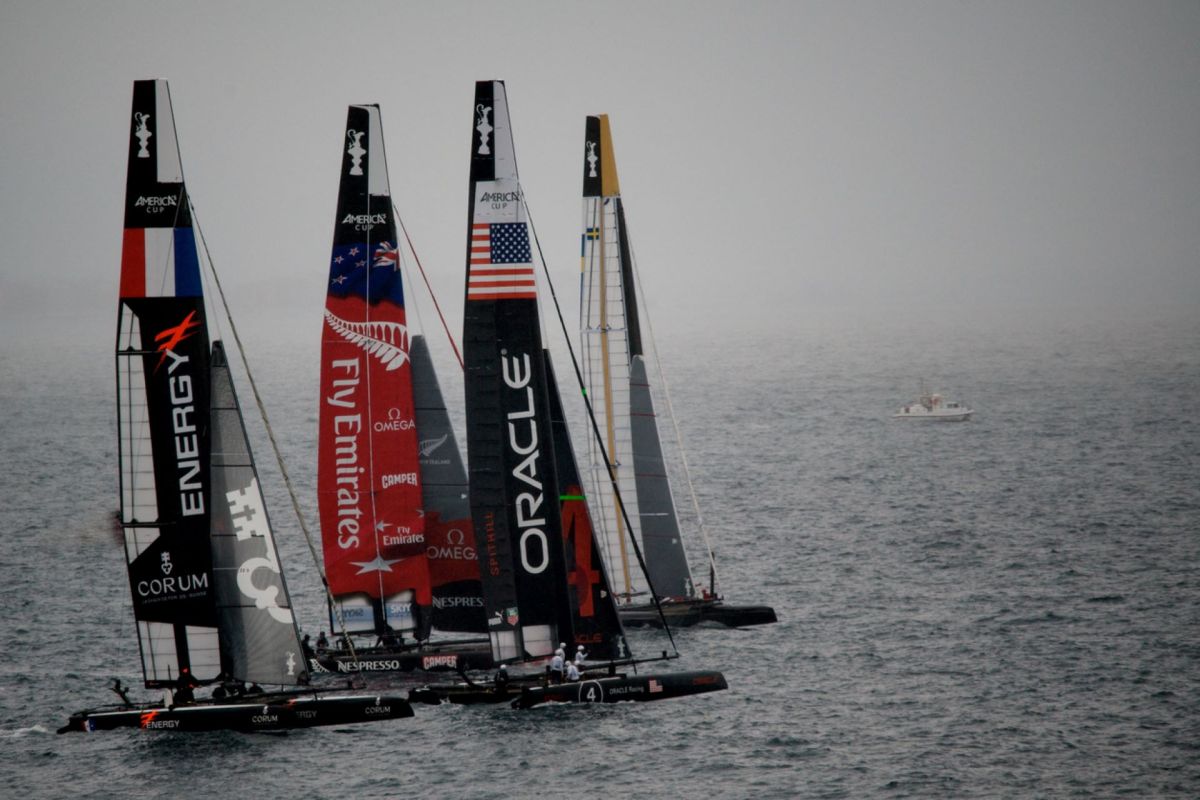Sailors in the latest edition of The Ocean Race faced whipping winds, fluctuating temperatures, and some of the world's most famously wild seas — and on one race leg, also collected samples for valuable findings about the spread of bacteria in Earth's rapidly warming oceans.
What happened?
The multitasking mariners of the 11th Hour Racing Team — which sailed the winning vessel in the six-month-long competition — gathered water samples in April and May over a 5,550-nautical-mile stretch between Brazil and Rhode Island.
The samples measured environmental DNA (eDNA), the genetic material of tiny life forms as well as cells shed by larger species. Scientists later analyzed the samples to study the species present in different places and how ocean warming is affecting diverse organisms.
The bad news is that the samples showed more parasitic bacteria in places with high sea surface temperatures. And, as Bloomberg noted, "The analysis also found higher amounts of parasitic bacteria that can be threatening to humans in areas nearer to land."
Perhaps more positively, the analysis revealed information about bacteria that break down plastic. Because the sailing route crossed a south-to-north swath of latitudes, scientists could observe that there were more of these bacteria in low latitudes, especially near Brazil.
Why are findings about warming oceans important?
The observations from one boat trip are not considered conclusive. However, they could have implications for our broader understanding of how bacteria spread in warming waters.
Some of the bacteria are potentially hazardous to humans and other animals. Others may be worth exploring for managing the ongoing problem of ocean plastic pollution, which sailors in The Ocean Race have also seen is on the increase, even in remote locations.
With ocean temperatures breaking records this year, data from hard-to-reach places are useful for understanding the effects of warming oceans on the spread of harmful bacteria and, potentially, for reducing ocean plastic.
"We're very excited about the data collected during The Ocean Race, particularly those linked with pathogens and plastic degraders," Xavier Pochon, a scientist involved in the analysis, said in a statement quoted by Bloomberg.
What can I do about warming oceans?
Oceans are sometimes taken for granted as remote expanses able to absorb high levels of heat and carbon.
However, warming and sinking carbon in oceans comes at its own costs, not just through the redistribution of parasites. It can also kill sea life, raise sea levels, disrupt ocean circulation patterns, and increase ocean acidity.
To help keep oceans cooler, we can all do our part to reduce carbon pollution — whether that's by reducing our use of dirty energy or limiting plastic use, which can have the added bonuses of saving money and reducing ocean pollution.
Join our free newsletter for weekly updates on the coolest innovations improving our lives and saving our planet.









